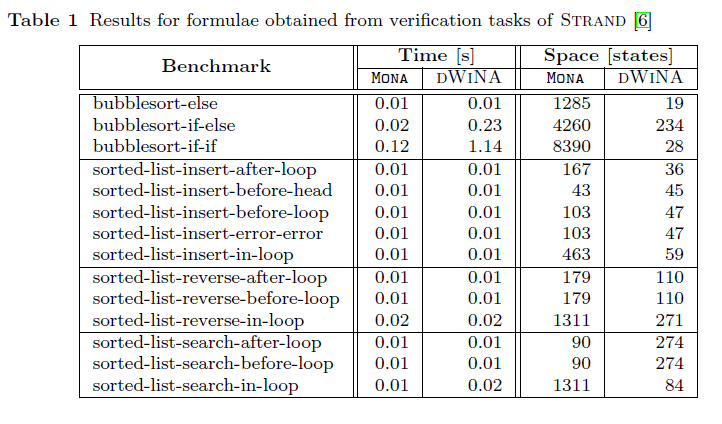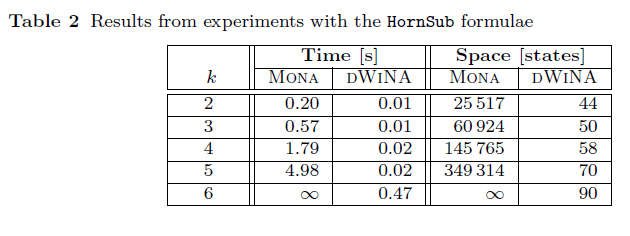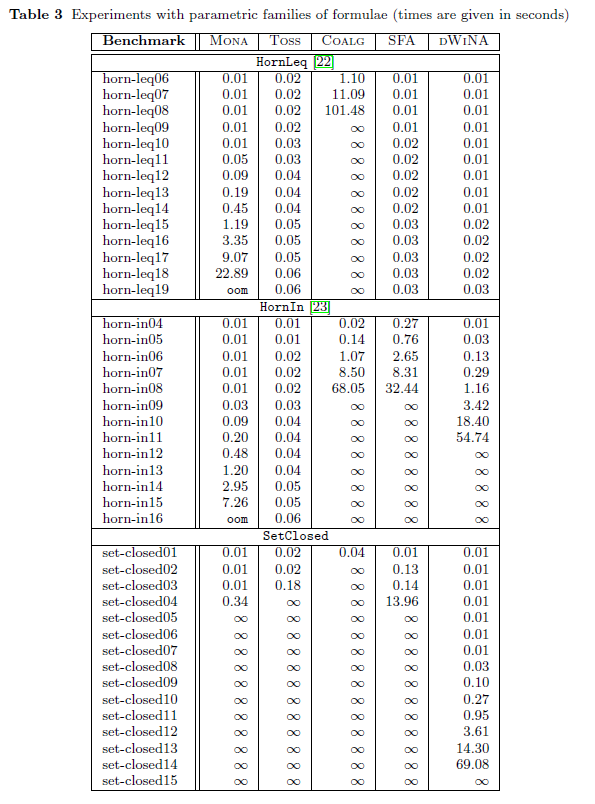Nested Antichains for WS1S
Published in Acta Informatica, 2019
Recommended citation: FIEDOR Tomáš, HOLÍK Lukáš, LENGÁL Ondřej and VOJNAR Tomáš. Nested Antichains for WS1S. Acta Informatica, vol. 56, no. 3, 2019, pp. 205-228. ISSN 0001-5903. https://tfiedor.github.io/files/pubs/2019-01-nested-antichains.pdf
| Institution Link | Institution information (fit.vutbr.cz) |
| Journal | ActaInformatica |
| Impact Factor | 0.6 (2022) |
This is an extended version of our paper Nested antichains for WS1S.
My contributions
- I helped with extension of the journal to include additional theory and explanations that did not fit to previous paper.
- I created a running example to better illustrate our techniques and notions.
Abstract
We propose a novel approach for coping with alternating quantification as the main source of nonelementary complexity of deciding WS1S formulae. Our approach is applicable within the state-of-the-art automata-based WS1S decision procedure implemented e.g. in Mona. The way in which the standard decision procedure processes quantifiers involves determinization, with its worst case exponential complexity, for every quantifier alternation in the prefix of a formula. Our algorithm avoids building the deterministic automata—instead, it constructs only those of their states needed for (dis)proving validity of the formula. It uses a symbolic representation of the states, which have a deeply nested structure stemming from the repeated implicit subset construction, and prunes the search space by a nested subsumption relation, a generalization of the one used by the so-called antichain algorithms for handling nondeterministic automata. We have obtained encouraging experimental results, in some cases outperforming Mona, and some of the other recently proposed approaches, by several orders of magnitude.



Cite us
FIEDOR Tomáš, HOLÍK Lukáš, LENGÁL Ondřej and VOJNAR Tomáš. Nested Antichains for WS1S. Acta Informatica, vol. 56, no. 3, 2019, pp. 205-228. ISSN 0001-5903.
